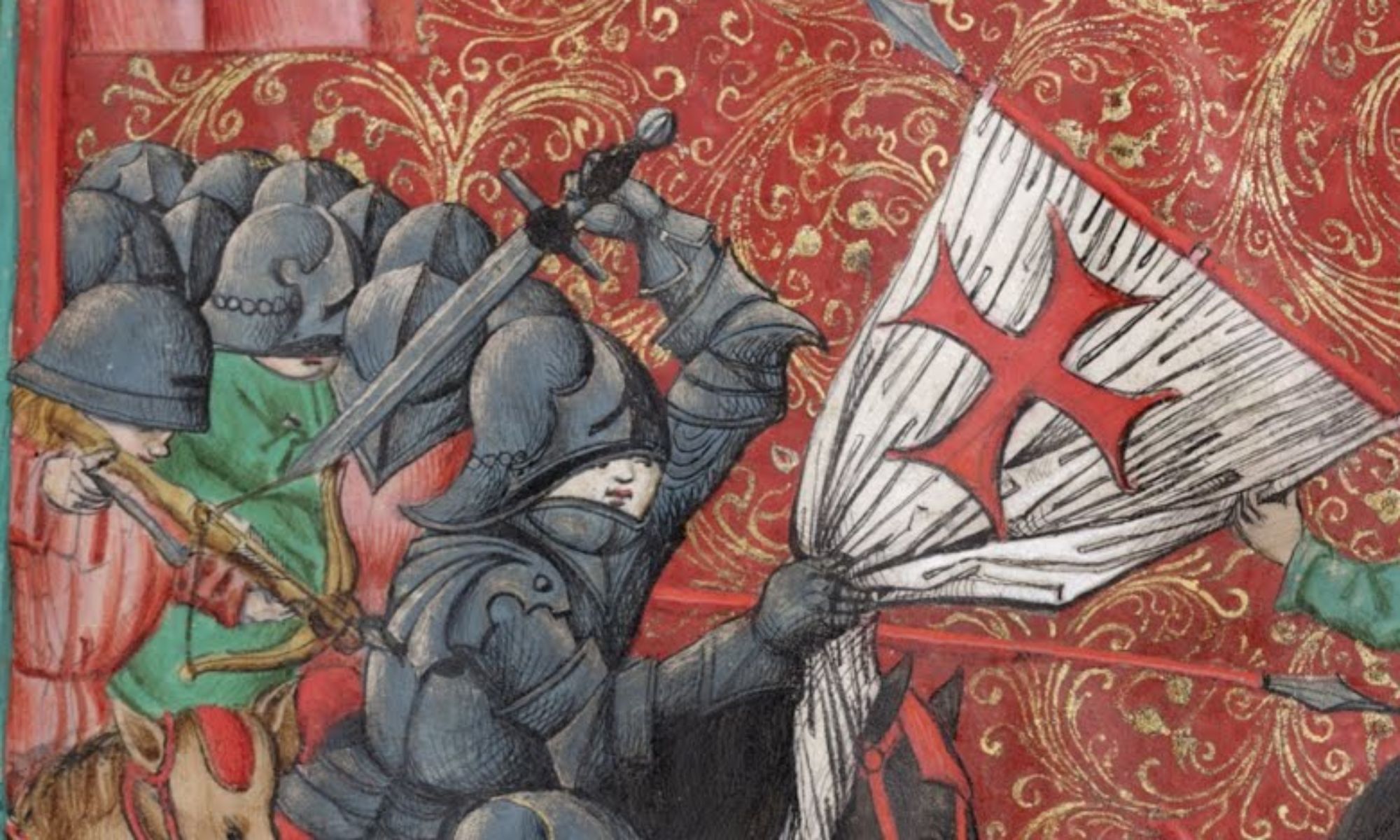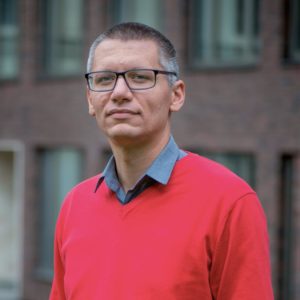
Přemysl Bar studied history and auxiliary sciences of history at Masaryk University in Brno. In 2011, heobtained his Ph.D. for a thesis on dukes of Silesia in 13th Century. Since 2011, he has been working at Masaryk University in Brno (Department of Auxiliary Historical Sciences and Archive Studies, Regesta Imperii – Brno). From 2012 – 2017, he held a research fellowship at Institute for Medieval Research (Austrian Academy of Sciences) in Vienna. His research interestsinclude late medieval charters, diplomacy, the reign of Sigismund of Luxemburg and conflict between the Teutonic Order and the Polish-Lithuania Commonwealth. His has published a book on this topic (MUNI Press 2017, in Czech): Diplomacy, Law and Propaganda in the Late Middle Ages: the Polish–Lithuanian Union and the Order of Teutonic Knights at the Council of Constance (1414–1418). As a co-editor he has participated in the publication of two volumes of Sigismund’s charters from South and West Bohemia (Böhlau 2015, 2016).
In the ExPro project, Přemysl Bar works on the topic The Teutonic Order and Sigismund of Luxembourg in the dynastic quarrels in the period ofWladislaus Jagiello (1386-1434) (Module 2: King and Conflict).
Pavel @MUNI homepage // @Academia.edu
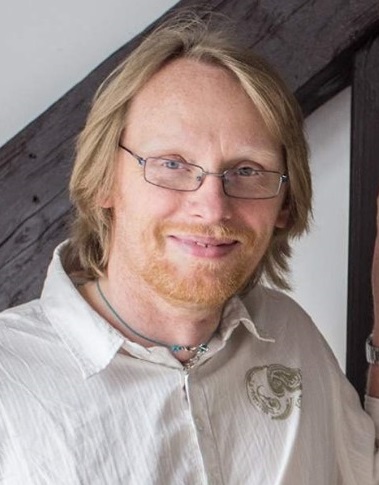
Stanislav Bárta studied history and archival science at Masaryk University in Brno. In 2015, he obtained his Ph.D. for a thesis on deeds of pledge of Sigismund of Luxembourg for the church estates (published 2016). Since 2011, he has been working at Masaryk University within Regesta Imperii Branch Office Brno, since 2014 as an instructor and department vice-head in Department of Auxiliary Historical Sciences and Archive Studies as well. His research interests include late mediaeval diplomatics, financial politics of Sigismund of Luxembourg and archival theory. As a co-editor he has participated in the publication of two volumes of Sigismund’s charters from South and West Bohemia (Böhlau 2015, 2016).
In the Expro project, Stanislav Bárta works on the topic: Money in Controversies: Financial Aspects of Late Medieval Conflicts.
Stanislav @Masaryk University
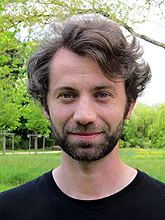
Vojtěch Bažant studied history at Charles University and he prepares Ph.D. thesis there as well. Within the Eramus programme he studied at Université Montpellier 3, Université Rennes 2 and at Eötvös Lóránd Tudományegyetem in Budapest. Since 2017, he has been working as a researcher at the Centre for Medieval Studies in Prague. His research interests include literary aspects of late medieval historiography and medieval travel literature. He has prepared a volume on perception of the other (Filosofia 2016) and on relations between comic and serious in medieval cultures (NLN 2019).
In the ExPro project, Vojtěch Bažant works on the topic of historiography as an instrument of contemporary conflicts within the Module 3: Seeking a New Order: Conflict as a Catalyst of Social Transformation.
Vojtěch @CMS homepage
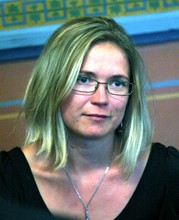
Pavlína Cermanová studied history at Charles University in Prague. In 2010, she obtained the PhD for a thesis on apocalyptic thinking in Hussite Bohemia. Since 2008, she has been working partly at the University of Konstanz and the Centre for Medieval Studies in Prague. From 2011–2013, she worked at the Institut für Mittelalterforschung ÖAW in Vienna as a member of the research team in the ERC Starting grant “The Origins of Vernacular Mode”. Since 2017, she is the investigator in the project “Transmission of Knowledge. The Fortune of Four Bestsellers in Late Medieval Czech Lands”. Her research interests consist in analyzing medieval apocalyptic thinking, prophetic texts and pseudo-Aristoteles’ texts in the Middle Ages. She has published a book on apocalyptic thinking in medieval Bohemia (Argo 2013).
In the ExPro project, Pavlína Cermanová works on the topic of the discord within the internally-diverse Hussite movement, the strategies of conflict management between Hussite groups/scholars and formation of Hussite radical religious fractions. Her work is a part of Module 1.
Pavlína @CMS homepage
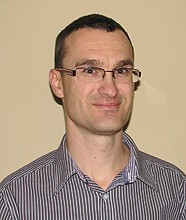
Dušan Coufal studied church history and protestant theology at Charles University in Prague. In 2012, he obtained his Ph.D. for a thesis on intellectual controversy over the Hussite chalice. In 2007-2011 and 2013-2015 he collaborated on the editing of Jan Hus’s work in the team of Jana Nechutová in Brno. Since 2014, he has been working at the Centre for Medieval Studies in Prague. He has published book on the controversy over the Hussite chalice (Kalich 2012), and was co-editor of two volumes of Jan Hus’s opera omnia (Brepols 2013 and 2015).
In the ExPro project, Dušan Coufal works on the topic Religious and political negotiations between the Hussites and the Council of Basel, 1431-1437,as a member of the Module 1: Religious Controversy in the Long Fifteenth Century.
Dušan @CMS homepage
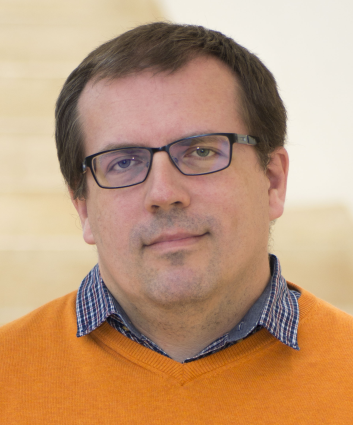
Petr Elbel studied history and auxiliary historical sciences at Masaryk University in Brno. In 2008, he obtained his Ph.D. for a thesis on Catholic Church administration in Moravia in the Hussite period. From 2004–2014 he worked at the Institute for Medieval Research of the Austrian Academy of Sciences in Vienna, working group Regesta Imperii. Since 2005 he has been working at the Masaryk University as well, since 2014 as a head of Department of Auxiliary Historical Sciences and Archive Studies. His research interests include church history, charters and diplomatics, political and military history of the Late Middle Ages. He participated in three volumes of the calendar-edition of Emperor Sigismund charters (Böhlau 2012, 2015 and 2016) and published a book concerning truces in the Hussite wars (MUNIpress 2016).
In the Expro project, Petr Elbel works on the topic Rex arbiter: the arbitrating panel as an institution of King Sigismund’s policy in the Holy Roman Empire.
Petr @Masaryk University
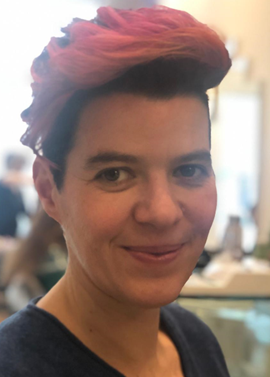
Klara Hübner studied history, Italian language and literature and medieval history of arts at the University of Bern, Neuchatel (CH) and Bologna (IT). She has been doing research and teaching at several Swiss universities, e.g. Bern (1998-2006), Fribourg (2008-2013) and Luzern (2010/12). In her Ph.D. (Bern, 2008, published: 2012, Mittelalter Forschungen ) she dealt with the communication and messaging systems of the late medieval Swiss confederates and the towns of the upper Rhine region. Beside communication, her interests include all manifestation of political cultural history, mostly in the Late Middle Ages, such as the formation of alliance systems, medieval bilingualism and recently the defamation of kings and its impact on historiographic image building.
In the ExPro project, Klara Hübner prepares de topic A self-intoxicating dynasty: The political and ideological dimensions of the quarrel between King Wenceslas IV, Margrave Jobst of Moravia, and Sigismund of Hungary (ca. 1390-1419). Besides, she is coordinating Module 2: King and conflict.
Klara @Masaryk University homepage // @Academia.edu
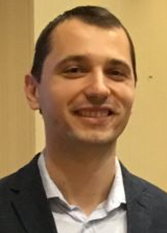
János Incze studied history, cultural heritage and medieval history at the Babeș-Bolyai University (RO) and Central European University (HU). His PhD (Budapest 2018) is a comprehensive study of King Sigismund of Luxembourg’s (1387-1437) pledges in the Kingdom of Hungary in the contemporary international framework. His main research interests cover medieval financial, political and social history.
In the ExPro project,János Incze focuses on the topic: Constrained Royal Authority: the Conflict Between Sigismund of Luxembourg and theHungarian Aristocracy (1382-1403).
János @Academia.edu
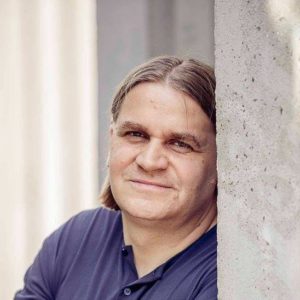
Martin Nodl studied history at the Charles University in Prague. In 2011 he obtained of doctoral thesis Kuttenberger Decree at the Masaryk University in Brno. In 2018 he habilited at the Faculty of Humanities, Charles University in Prague. Since 2001 he has been working at the Centre for Medieval Studies in Prague. His research interests include late medieval social and culture history, history of historiographie. His has published this books: Tři studie o době Karla IV. (Argo 2006), Dějepisectví mezi vědou a politikou. Úvahy o historiografii 19. a 20. století (CDK 2007), Dekret kutnohorský (Lidové noviny 2010), Středověk v nás (Argo 2015), Das Kuttenberger Dekret von 1409: Von der Eintracht zum Konflikt der Prager Universitätsnationen (Böhlau 2017).
In the ExPro project Martin Nodl works on the topic Conflicts and their resolution in the late Middle Ages: The case of South Bohemia.
Martin @CMS homepage // @Academia.edu // @Clio Online
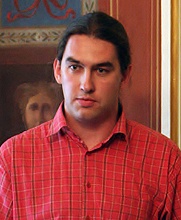
Robert Novotný studied history and social sciences at Charles University in Prague. In 2008, he obtained his Ph.D. for a thesis on social, confessional and institutional development of the nobility in late medieval Bohemia. Since 2000, he has been working at the Centre for Medieval Studies in Prague. He is editor-in-chief of the journal Studia mediaevalia Bohemica, in CMS is also responsible for Digital Humanities. His research is mainly concerned with the history of the nobility, Hussitism and historical semantics.
In the ExPro project, Robert Novotný works on the topic Between the king and estates: The Land Court as an indicator of social transformations and is responsible for the cooordination of the Module 3: Seeking a New Order: Conflict as a Catalyst of Social Transformations.
Robert @CMS homepage // @Academia.edu
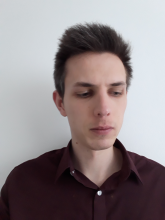
Adam Pálka studied history at Charles University in Prague and Masaryk University in Brno. In 2014, heobtained his master degree for a thesis that analyses the utraquist antipapal polemic Super responsoPiipape, written by Martin Lupáč in 1462. Since 2019, he has been working at the Centre for Medieval Studies in Prague. He also taughthistory courses at Masaryk University between 2016–2017. His research focuses on religious controversy in the late medieval Bohemian lands with emphasis on the famous Compactata of Basel (1436).
In the ExPro project, Adam Pálka works on the topicImperfect conflict resolution: The Compactata of 1436 as a driving force of disputesand isoneofthescholarswho are involvedin Module 1: ReligiousControversy in the Long FifteenthCentury.
Adam @CMS homepage
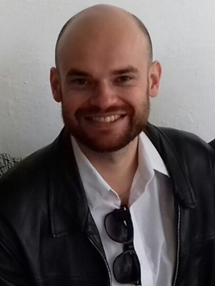
Martin Pjecha is currently a Ph.D. candidate at the Central European University (Budapest, Vienna). His Ph.D. project covers the discourses and theology of violence in the late medieval radical Hussite movement. His research fellowships include the Leibniz-InstitutfürEuropäischeGeschichte (Mainz, Germany) and the French Research Center in Humanities and Social Sciences (Prague). His research interests include the cross-cultural phenomenon of religious violence, political theologies, intellectual history, and comparative religion. His publications include studies of anti-heretical thinkers (2016), and studies on Hussite violence in the framework of this thesis (2015 & 2018).
In the ExPro project, Martin Pjecha works on the topic Revolutionary violence in the Hussite movement within the framework of Module 1: Religious Controversy in the Long Fifteenth Century.
Martin @CMS homepage // @Academia.edu
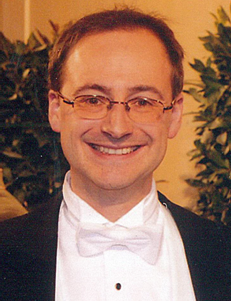
Heinrich Speich studied medieval and early modern history, pre- and protohistoric archeology and archeometry at Fribourg, Berne and Berlin. His Ph.D. thesis deals with contracts of naturalizations in towns of late-medieval upper Germany (Burgrecht). His research focus is the social and political history of urban and rural communities as well as the development of material culture in central and western Europe. He holds an MAS in museology and heritage conservation and works in Switzerland as an expert for cultural property protection (CPP).
In the ExPro project, Heinrich Speich investigates role and impact of Empire and kingship in conflicts in the upper German and Swiss region in the „luxemburg era“ (1350-1450).
Heinrich @Ibid.ch

Ondřej Schmidt studied history at the Masaryk University in Brno. Since 2015, he is a research fellow as well as Ph.D. candidate at the Department of Auxiliary Historical Sciences & Archive Studies at the same university. During his studies, he held scholarships at the University of Pisa (Erasmus programme, twice) and at the University of Vienna (Aktion programme). His research is focused mainly on late medieval diplomacy and on the relations between the Luxembourg dynasty andNorthern Italy. He has published a book on John of Moravia, patriarch of Aquileia(Vyšehrad 2016;EnglishtranslationforthcomingatBrill 2019), and several articles in Czech as well as international journals and volumes.He was also a co-editor of the exhibition catalogue about the Italian Collalto family (Munipress 2019).
Within the ExPro project, Ondřej Schmidt works on the module Politics of Conflict? Kings and Emperors of the Romans as Rulers of Regnum Italiae (1378–1437).
Ondřej @Masaryk University // @Academia.edu
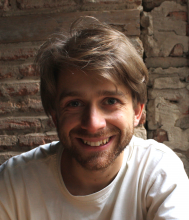
Martin Šorm studied history at Charles University in Prague. In 2015 he has started working on his Ph.D. thesis on Czech late medieval literature. Since 2011 he has been working at the Centre for Medieval Studies in Prague. He concentrates on Czech (14th–15th century) French (12th–13th century) literature, on medieval imagination and on modern representations of the medieval culture. He is editor of Dějiny a současnost and teaches medieval literature.
In the ExPro project Martin Šorm works on the topic Old-Czech literary ‘disputes’: Representing and interpreting conflict in the Module 3: Seeking a New Order: Conflict as a Catalyst of Social Transformations.
Martin @CMS homepage
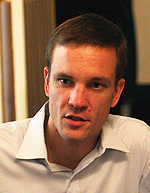
Pavel Soukup studied history at Charles University in Prague. In 2007, he obtained his Ph.D. for a thesis on reform preaching in late medieval Bohemia. Since 2003, he has been working at the Centre for Medieval Studies in Prague. From 2012–2014, he held a post-doctoral Alexander von Humboldt Research Fellowship at Humboldt University in Berlin. His research interests include late medieval religious literature, heresy and crusading in Central Europe. His has published books on reform preaching (Filosofia 2011), Jan Hus (Kohlhammer 2014, NLN 2015, Purdue University Press 2019), and the indulgence riots of 1412 (Havran 2018).
In the ExPro project, Pavel Soukup works on the topic The crusades against the Hussites: Conflict management in late medieval Latin Christendom and is responsible for the cooordination of the Module 1: Religious Controversy in the Long Fifteenth Century.
Pavel @CMS homepage // @Academia.edu

Václav Žůrek is a post-doctoral fellow at the CMS. He studied history at Charles University in Prague. He got his Ph.D. from the EHESS in Paris and Charles University for a thesis on the legitimization of royal power in the fourteenth century (publication forthcoming). In his research, he focus on medieval political thought, rituals and historiography. He has published book about Emperor Charles IV (NLN 2018) and also co-edited an international volume on the Luxembourgs (Böhlau, 2017).
In the ExPro project, Václav Žůrek works on the topic The King as a decisive element in a society in permanent conflict within the Module 2.
Václav @CMS homepage // @Academia.edu
